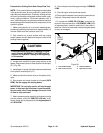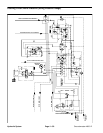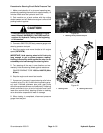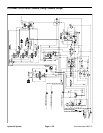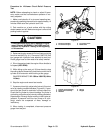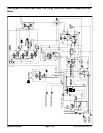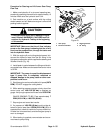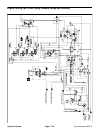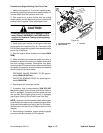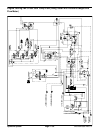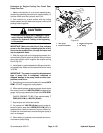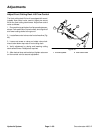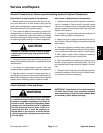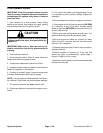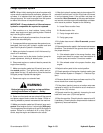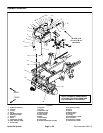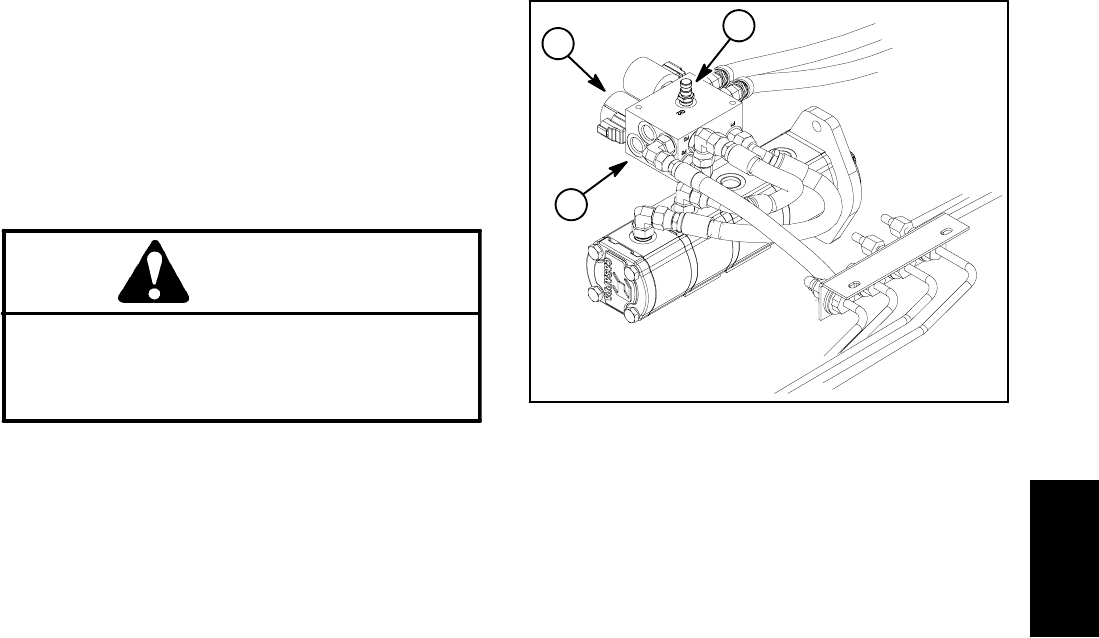
Groundsmaster 4000--D Hydraulic SystemPage 4 -- 57
Procedure for Engine Cooling Fan Circuit Test
1. Make sure hydraulic oil is at normal operating tem-
perature by operating the machine for approximately 10
minutes. Make sure the hydraulic tank is full.
2. Park machine on a level surface with the cutting
decks lowered and off. Make sure engine is off and the
parking brake is applied. Raise and support hood.
CAUTION
Prevent personal injury and/or damage to equip-
ment. Read all WARNINGS, CAUTIONS and Pre-
cautions for Hydraulic Testing at the beginning
of this section.
3. Raise seat to gain access to cooling fan circuit test
port at the fan drive manifold (Fig. 44). Connect a 5,000
PSI (345 bar) gauge with hydraulichoseattached to test
port on top of manifold.
4. Start the engine. Move throttle to full speed (2870
RPM).
5. While monitoring the pressure gauge and using a
phototac to identify the cooling fan speed, disconnect
the wire harness connector ( white/green and black
wires)fromthe PRVsolenoid onfan drive manifold.Both
fan speed and pressure should increase and stabilize
after the solenoid is disconnected.
PRESSURE GAUGE READING TO BE approxi-
mately 3000 PSI (207 bar).
PHOTOTAC READING TO BE: fan speed approxi-
mately 2800 RPM.
6. Stop engine and record test results.
7. If pressure rises to approximately 3000 PSI (207
bar) but fan speed is low, consider that the fan motor is
worn or damaged. If pressure and fan speed are both
low, consider that the gear pump is worn or damaged
(see Engine Cooling Circuit Gear Pump Flow Test).
NOTE: Ifpressure and fan speed are both low and gear
pump flow proves to be correct, suspect thatseals in fan
drive manifold are leaking or faulty (see Fan Drive Man-
ifold Service in the Service and Repairs section of this
chapter).
8. When testing is complete, remove pressure gauge
and reconnect wire harness to PRV solenoid.
1. Fan drive manifold
2. PRV solenoid
3. Test port
Figure 44
1
2
3
Hydraulic
System



